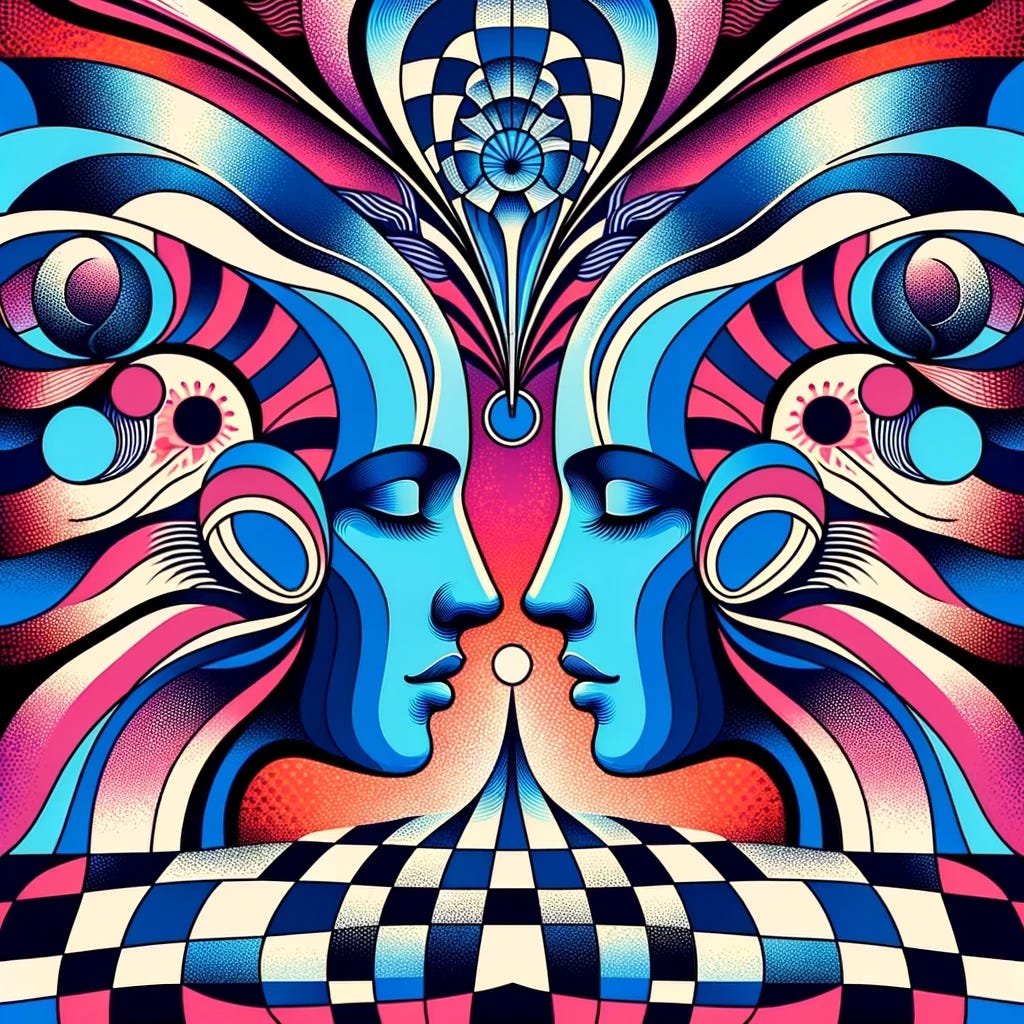As we progress on our spiritual journeys, so too does our knowledge become more refined. i didn’t know what tantra was when i first came onto the yoga scene back in 2005. Like most people, i thought it had something to do with “spiritual sex”.
Before i met my first tantra teacher, (around 2009?) i had already read a couple of books that led me to believe tantra was more than only spiritual sex and pleasure tips. From those books i picked up on a Goddess oriented vibe and an embrace of the interweaving of all energies. i would say this more expanded generalization holds some weight in at least some lineages…
What i like people to understand is this: there is what scholars call “neo tantra” (sometimes called red tantra) and then there is “classical tantra”. This guide is not meant to give an exhaustive explanation of the differences. If you are interested, definitely read the book i will mention below.
Now, some classical Indian-tantric lineages did explore some sexual practices, but it was not the predominating teaching. At all. Not to down play the new or “Neo tantra” but just that it’s different than what was being taught a long time ago. A lot. Although it’s claimed their teachings are old, scholars are calling that as a commercially-incentivized bluff (that maybe those teachers either are or are not aware of). Anyway, this is nothing against Neo-tantra teachers, some have beautiful practices to share. It is nice to know there are options and some may be better more effective at helping us attain our goals than others.
In the audio above i explain a little about why i lean toward classical teachings and sharing them.
To continue this brief explanation of what tantra is, i will draw upon the work of Sanskrit and medieval tantric scholar, Chris Wallace (aka Hareesh).
According to Hareesh, tantra was not what the spiritual system was called back in the day. A tantra was (is) a revealed scripture and each teacher or lineage had a main tantra they drew upon for a “complete system of spiritual practice”. People within the tradition would not identify themselves as tantrikas, as we might do today, but rather ask fellow practitioners they meet from other lineages “what tantra do you follow?”
What else does Hareesh have to say about classical tantra? Well, a lot, as he wrote a thick book on the classical Indian tantric lineages called Tantra Illuminated. However, here is some brief context about the tradition coming from his public facing pages of the Tantra Illuminated website:
Classical Tantra refers to a spiritual movement which originated in the Indian subcontinent between the 3rd and 12th century. It is generally meant as a ‘system of practices’, more precisely psychophysical and awareness cultivation practices, whose end-point is embodied liberation (jīvanmukti).
In our everyday life, embodied liberation translates into total intimacy with the whole of reality. This requires us to step outside of our conceptualization of reality to see directly rather than through the lens of our stories, thoughts, labels, and past conditioning.
Classical Tantra is intended and designed for people with busy lives, who have jobs and families. It is non-transcendentalist and it embraces every part of the human experience. It recognizes the divinity in the whole of reality. This includes you!”
In his book, Tantra Illuminated, he offers what he calls an interpretative etymological meaning of tantra which, by breaking the word into two parts (tan and tra) would mean something like “wisdom that saves”. This he claims is supported by a quote Hareesh utilizes in his book from the Kamika-tantra. This quote being;
“Because it elaborates copious and profound matters, especially relating to the principles of reality (tattvas) and mantras, and because it saves us (from the cycle of suffering), it is called a tantra.”
Again, “a tantra” referring to a scripture, divinely revealed, and which contained an entire system of spiritual practice that would aid in the goals of the practice and tradition.
But, saves us from what? That is beyond the scope of this short post and better as a future audio cast. What can be said shortly is that it saves us from mental suffering caused by mental constructs we inherit and develop during our life due to family upbringing, culture and religion. These would include caste, gender, and race. And the reason we would want to shed misconceptions is so we can recognize the Truth, which is:
“All that exists, through all time & space, is one all-encompassing and unbroken field of awareness.” — Tantra Illuminated website
This way of perceiving is sometimes referred to in the West as enlightenment but Hareesh, for various reasons, likes the term awake or wakefulness. It is this recognition of Truth, or innate state of being, that is considered liberation.
In his book, Hareesh goes on to quote, and then unpack, the only definition known of (what we call) tantra as provided by the tradition itself. That definition says there are two goals. One is spiritual liberation, while the other is pleasure and enjoyment of life.
Both are considered valid goals, but one is only considered a true practitioner within the tradition if both goals are sought. So, if the ultimate goal behind the practice does not contain the desire for spiritual liberation, it’s not considered tantric (tantra).
Two more things. Yes, i am aware of the definition by non-Sanskrit scholars saying the meaning of tantra means weave or loom. And there are dualist lineages of tantra. What i study is non-dual.
___
FYI / for transparency, i consider Hareesh one of my (fav) teachers and he has an amazing online community and holds online, live retreats, and pilgrimages several times a year. Aside from courses, there is a lot of other content to be found and offerings if you join. (He does not know I’m promoting him btw ;) ).
_______________
Why do “i” use lower case I’s?
The illusion of I
“Truth - All that exists, through all time and space, is one all-encompassing and unbroken field of awareness. (From the Tantra Illuminated site).” Hello and welcome, namaskaram, to this important PSA of a (pod)cast. For years? “i” have been tripping on something - kinda hard, impacting the fluidity of the transmissions in this space (meaning, these Subs…















Share this post